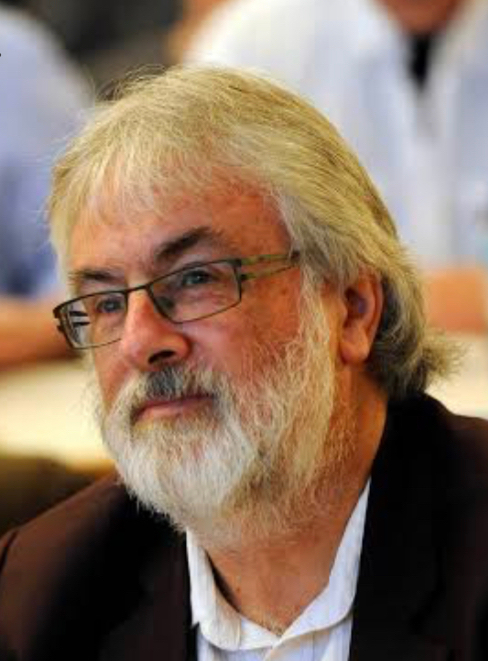Minister of Health Chris Hipkins is trying to justify the restructuring of DHBs proposed by the Heather Simpson review of New Zealand’s health and disability system with the argument that it will solve the problem of what he labels as the postcode lottery of access to health services.
By postcode lottery he meant that access to funded health services was an inequitable lottery depending on where one lived. The term was popularised by Tony Ryall when he was National’s opposition health spokesperson in 2005-08. His response was the slogan ‘better, sooner, more convenient’ although little of substance changed during his six subsequent years as health minister.
The Simpson review doesn’t give the same emphasis to postcode lotteries as the Minister is now giving. Its final report doesn’t use the term. The closest it gets is three brief references to geographic location. One of these references briefly lists it as one of five factors (along with ethnicity, socio-economic deprivation, age and disability) whose interactions “exacerbate inequitable outcomes and access to healthcare” (p.26).
The Simpson review identifies inequities and lack of national cohesion as the major problems facing the health and disability system. Rather than focus on process improvement, capability and capacity, it proposes a massive restructuring of the system’s bureaucratic structures without outlining how this will address these problems.
Simpson’s ‘mega DHBs’
District health boards are statutory creations responsible for the totality of community and hospital healthcare for their defined geographic populations. The Simpson review proposes replacing the current 20 DHBs with somewhere between 8 and 12 ‘mega DHBs’ controlled by a new additional national bureaucracy. Most likely these new ‘mega DHBs’ will be based in Auckland, Hamilton, Hastings or Palmerston North, Wellington, Christchurch and Dunedin. In other words, our bureaucratic structures running the health system will be both much bigger and more distant from their communities than now.
There is no logical link between this restructuring (or, for that matter, the current DHB structure) and postcode lottery access. To appreciate this it helps to understand what a DHB actually is. A DHB is responsible for a defined population in a geographic area containing at least one base hospital (providing a varying range of emergency, acute, chronic illness, diagnostic and elective services) and community health providers such as general practices (who can refer patients to the base hospital) and rest homes.
Let’s assume
More often than not postcode lottery refers to access to hospitals. Let’s assume, rightly or wrongly, that the residents of Wairarapa DHB have less access to their base hospital in Masterton than residents of Capital & Coast DHB have to Wellington Hospital.
Let’s then assume, in accordance with the Simpson review, that both DHBs disappear and we have a new bigger ‘mega DHB’ covering the lower (perhaps also mid) North Island. How is this going to help remove postcode lottery for those seeking access to health services in Wairarapa especially when decision-makers are now distant and the Wairarapa voice no longer exists? And who, apart from the marginalised, is going to advocate for the continued provision of health services in Wairarapa. This scenario can be applied to the rest of the country.
The only way the postcode lottery could be removed under this restructuring was if access data were to be aggregated for each of the ‘mega DHBs’ so that the situation of the geographically disadvantaged hospitals is fudged. In other words, data cleansing.
What the health minister should do
If Minister Hipkins wants to remove postcode lottery for access to health services he should not look to restructuring as the solution. Instead he should focus on reducing (preferably removing) the effects of the social determinants of health (which are external to the health system), addressing our debilitating health professional shortages, strengthening the role of services responsible for the healthcare of populations (differentiating from individual patient diagnosis and treatment), requiring workforce empowerment through active engagement between health professionals and decision-makers at all levels of the system, and upgrading our rundown public hospital facilities.
To cut to the chase, using restructuring DHBs to address postcode lottery is sheer bonkers Minister. You are smart enough to be better than this.



 Richard S. Ehrlich: China's Great Wall & Egypt's Pyramids
Richard S. Ehrlich: China's Great Wall & Egypt's Pyramids Gordon Campbell: On Surviving Trump’s Trip To La La Land
Gordon Campbell: On Surviving Trump’s Trip To La La Land Ramzy Baroud: Famine In Gaza - Will We Continue To Watch As Gaza Starves To Death?
Ramzy Baroud: Famine In Gaza - Will We Continue To Watch As Gaza Starves To Death? Peter Dunne: Dunne's Weekly - A Government Backbencher's Lot Not Always A Happy One
Peter Dunne: Dunne's Weekly - A Government Backbencher's Lot Not Always A Happy One Richard S. Ehrlich: Cyber-Spying 'From Lhasa To London' & Tibet Flexing
Richard S. Ehrlich: Cyber-Spying 'From Lhasa To London' & Tibet Flexing Gordon Campbell: On Aussie Election Aftershocks And Life Lessons
Gordon Campbell: On Aussie Election Aftershocks And Life Lessons